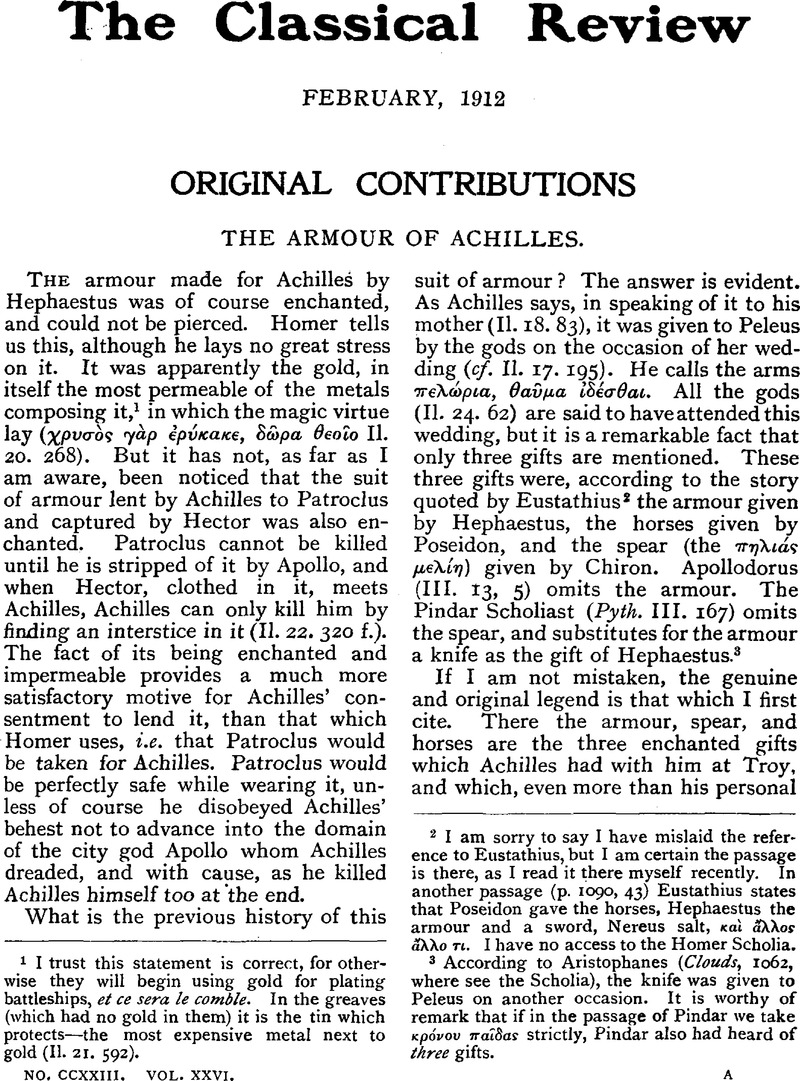Published online by Cambridge University Press: 27 October 2009

page 1 note 1 I trust this statement is correct, for otherwise they will begin using gold for plating battleships, et ce sera le comble. In the greaves (which had no gold in them) it is the tin which protects—the most expensive metal next to gold (II. 21. 592).
page 1 note 2 I am sorry to say I have mislaid the reference to Eustathius, but I am certain the passage is there, as I read it there myself recently. In another passage (p. 1090, 43) Eustathius states that Poseidon gave the horses, Hephaestus the armour and a sword, Nereus salt, ![]() . I have no access to the Homer Scholia.
. I have no access to the Homer Scholia.
page 1 note 3 According to Aristophanes (Clouds, 1062, where see the Scholia), the knife was given to Peleus on another occasion. It is worthy of remark that if in the passage of Pindar we take ![]() strictly, Pindar also had heard of three gifts.
strictly, Pindar also had heard of three gifts.
page 2 note 1 Peleus wedded Thetis at her home, and drove her home to Phthia on this chariot (Pherecydes Fr. 16).
page 3 note 1 In this passage ἰθνπτ⋯ων is so very inappropriate as an epithet, that Zenodotus wished to alter it. It now appears to me that the fact of Asteropaeus being the son of a River points to some modification here, and that in Homer's original the spear was aimed at Scamander himself.
page 3 note 2 Another magic quality it had (ignored by Homer) was that wounds inflicted by it were incurable—i.e., it was magically poisoned. I should add that it is obvious (and this certainly will not escape Mr. Lang) that Achilles, after killing Hector, had two enchanted (⋯φαιστ⋯-τενκτα) suits of armour, the old and the new, so that Ulysses and Ajax might have had one apiece. I think this rather indicates that the story of the contest for the armour is older than that of its loss, replacement, and recovery. Thetis is represented as the ⋯γωνοθ⋯της in this contest with Neoptolemus (whose very name betrays his comparatively recent origin). This is her proper position as regards a suit of armour given to herself on her wedding, lent to her son, and reverting to her, less so as regards a suit of armour ordered by her for her son on an emergency.
page 3 note 3 Or, perhaps, one should rather say that magic poison was more certain death than ordinary poison. It would be doubly repulsive to Homer, as poison (Murray, Gr. Epic, p. 148) and as magic.